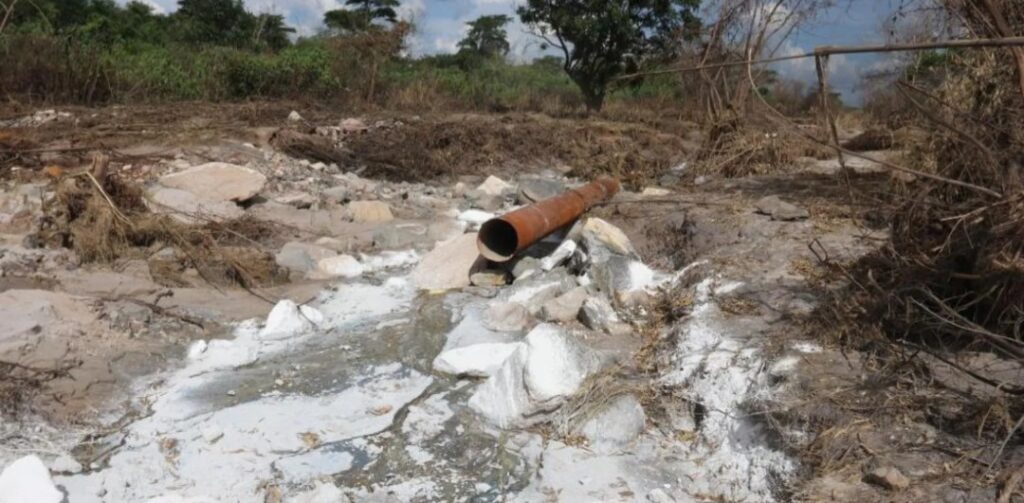
Esther Imonmion
Farmers in Zambia have launched an $80 billion (£58.5bn) lawsuit against two Chinese-linked mining companies, accusing them of causing an “ecological catastrophe” after the collapse of a waste storage dam earlier this year.
According to court papers filed on Monday, September 15, in the High Court in Lusaka, the farmers blame Sino Metals Leach Zambia and NFC Africa Mining — subsidiaries of Chinese state-owned firms — for a toxic spillage that has contaminated water, destroyed crops and killed fish across the Copperbelt region.
The incident occurred in February 2025 when a tailings dam owned by Sino Metals Leach Zambia collapsed, releasing millions of litres of acidic material into surrounding waterways. Farmers said the disaster affected more than 300,000 households, making water undrinkable and rendering farmland unusable.
“This is one of the biggest environmental lawsuits in Zambia’s history,” lawyers for the 176 petitioners said, noting they had filed the case on behalf of their wider community.
The petitioners alleged that engineering failures, construction flaws and operational mismanagement led to the collapse. In their filings, they reported widespread health problems, including chest tightness and blood in urine, and said many villages’ wells had also been contaminated.
The farmers are demanding that the firms deposit $80 billion into a government-managed account as security for “environmental reparation” and compensation. They also requested the establishment of a $20 million emergency fund for urgent relief and medical assessments.
Sino Metals Leach Zambia previously admitted on September 3 that about 50,000 cubic metres of waste had spilled but insisted the breach was “promptly brought under control within hours.” NFC Africa Mining has not commented on the case.
The disaster drew international concern. On August 8, the U.S. embassy in Lusaka issued a health alert warning of “widespread contamination of water and soil” and ordered the withdrawal of its personnel from Kitwe, the largest city in the Copperbelt. It also cautioned that mine tailings could become airborne, posing further risks if inhaled.
Zambian government spokesperson Cornelius Mweetwa, however, downplayed the alarm, stating on August 10 that there were “no longer any serious implications for public health” and urging against pressing the “panic button.”
The High Court is yet to set a date for the hearing of the matter.
